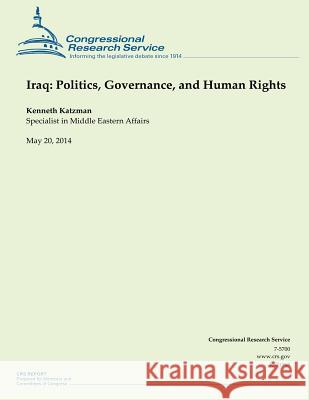Iraq: Politics, Governance, and Human Rights » książka
Iraq: Politics, Governance, and Human Rights
ISBN-13: 9781502998149 / Angielski / Miękka / 2014 / 50 str.
Iraq: Politics, Governance, and Human Rights
ISBN-13: 9781502998149 / Angielski / Miękka / 2014 / 50 str.
(netto: 60,61 VAT: 5%)
Najniższa cena z 30 dni: 62,94
ok. 16-18 dni roboczych.
Darmowa dostawa!
Since the 2011 U.S. military withdrawal from Iraq, sectarian and ethnic divisions have widened, fueling a revival of a Sunni Muslim insurgent challenge to Iraq's stability. Iraq's Sunni Arab Muslims resent Shiite political domination and perceived discrimination by the government of Prime Minister Nuri al-Maliki. Iraq's Kurds are embroiled in separate political disputes with the Baghdad government over territorial, political, and economic issues, particularly their intent to separately export large volumes of oil produced in the Kurdish region. The political rifts-which were contained by the U.S. military presence but have been escalating since late 2011-erupted into a large and sustained uprising in December 2013. The insurrection is led by the Sunni insurgent group Islamic State of Iraq and the Levant (ISIL). The group and its allies still control several cities in Anbar Province, including the key city of Fallujah, and have pockets of control near Baghdad. The sectarian violence, which killed nearly 9,000 Iraqis in 2013, did not derail the national elections for a the Council of Representatives (COR, parliament) held on April 30, 2014, although voting in some Sunni-dominated areas was limited. Facing divided opponents, Maliki's slate won the most seats and he is expected to seek to retain his post for another four year term.
Zawartość książki może nie spełniać oczekiwań – reklamacje nie obejmują treści, która mogła nie być redakcyjnie ani merytorycznie opracowana.











